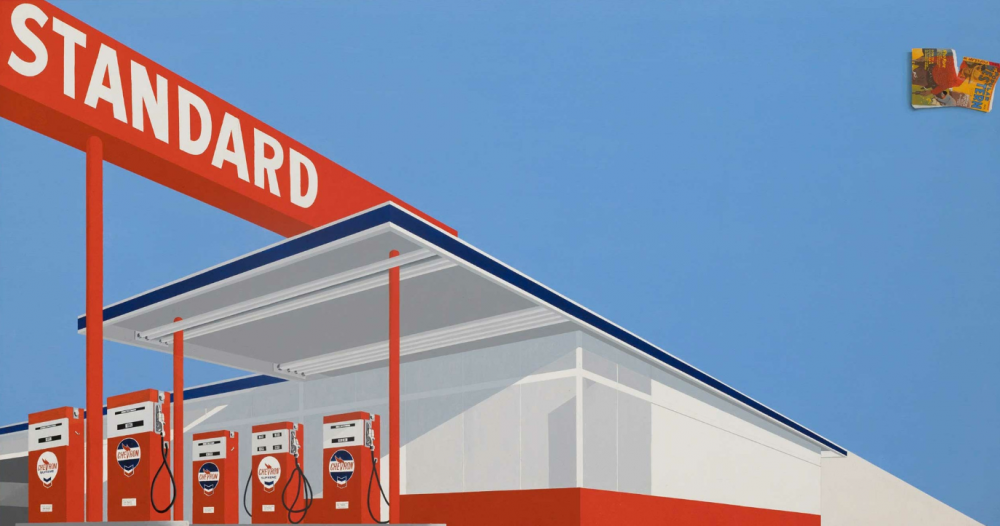TITLE_NAME :
09/10/2023 - 01/13/2024
MoMA - THE MUSEUM OF MODERN ART
11 West 53 Street
NY 10019 New York
www.moma.org
“I don’t have any Seine River like Monet,” Ed Ruscha once said. “I’ve just got US 66 between Oklahoma and Los Angeles.” ED RUSCHA / NOW THEN will feature over 200 works—in mediums including painting, drawing, prints, photography, artist’s books, film, and installation—that make use of everything from gunpowder to chocolate. Exploring Ruscha’s landmark contributions to postwar American art as well as lesser-known aspects of his more than six-decade career, the exhibition will offer new perspectives on a body of work that has influenced generations of artists, architects, designers, and writers.
In 1956, Ruscha left his hometown of Oklahoma City and drove along interstate highway 66 to study commercial art in Los Angeles, where he drew inspiration from the city’s architecture, colloquial speech, and popular culture. Ruscha has recorded and transformed familiar subjects—whether roadside gasoline stations or the 20th Century Fox logo—often revisiting motifs, sites, or words years later. Tracing shifts in the artist’s means and methods over time, ED RUSCHA / NOW THEN underscores the continuous reinvention that has defined his work.
MoMA - THE MUSEUM OF MODERN ART
11 West 53 Street
NY 10019 New York
www.moma.org
“I don’t have any Seine River like Monet,” Ed Ruscha once said. “I’ve just got US 66 between Oklahoma and Los Angeles.” ED RUSCHA / NOW THEN will feature over 200 works—in mediums including painting, drawing, prints, photography, artist’s books, film, and installation—that make use of everything from gunpowder to chocolate. Exploring Ruscha’s landmark contributions to postwar American art as well as lesser-known aspects of his more than six-decade career, the exhibition will offer new perspectives on a body of work that has influenced generations of artists, architects, designers, and writers.
In 1956, Ruscha left his hometown of Oklahoma City and drove along interstate highway 66 to study commercial art in Los Angeles, where he drew inspiration from the city’s architecture, colloquial speech, and popular culture. Ruscha has recorded and transformed familiar subjects—whether roadside gasoline stations or the 20th Century Fox logo—often revisiting motifs, sites, or words years later. Tracing shifts in the artist’s means and methods over time, ED RUSCHA / NOW THEN underscores the continuous reinvention that has defined his work.


